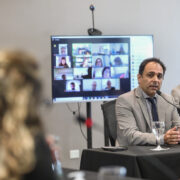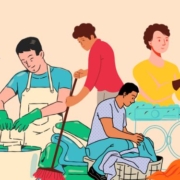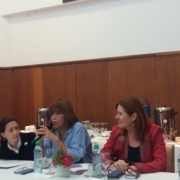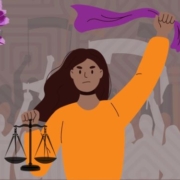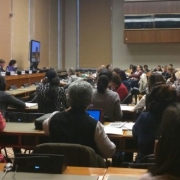Pride is political. A review of the 11th March of dissident pride
On Saturday, November 9, the 11th March of the Dissenting Pride was held in the city of Córdoba, which was lived as a party but also as a space for struggle, for vindication and for denunciation.
“Below, we offer a google translate version of the original article in Spanish. This translation may not be accurate but serves as a general presentation of the article. For more accurate information, please switch to the Spanish version of the website. In addition, feel free to directly contact in English the person mentioned at the bottom of this article with regards to this topic”.
From emotional content to what advertising doesn’t show
The 11th March of the Dissenting Pride, the most massive to date, sought to show that, under the glitter, colors and music, there is a history of struggles and denunciations that are far from being what some speeches show us as a (maybe desirable) reality.
The violence of genders that affect the LGBTTTIQ + community is almost impossible to imagine for those who live and conceive of reality from the cisheteronorma. Camila Sosa Villada, renowned playwright, actress, writer and trans activist, tells how her childhood was one of the saddest stages of her life:
“It was very hard, they chased me with stones. (…) I was walking down the street and people spit on me. They wouldn’t let me in the places, I couldn’t go to work at my classmates’ homes because their parents wouldn’t let me in. I could not go to the alumni party because the parents had decided that if I was dressed as a woman I could not enter the party. That is the story of trans people right now in Argentina. Not being able to go out during the day, not being able to go to the river, going to sit in a square, not being able to go to the supermarket … ”
These violence have its highest point in hate crimes by sexual orientation, identity and / or gender expression that, by 2018, reached 147, and 68 by the first half of 2019, in Argentina. Most of these crimes affect younger people (between 30 and 39 years old), which coincides with the average life expectancy of trans people who have a minimum of 35.5 and a maximum of 41.25 years , while for cis people in Latin America it is 75 years.
The day and the street as a territory of dispute: the claims
Again, as for 11 years, pride took to the streets. Like the carnivals that enable “out” the repressed, denied, the invisible by monstrous and dissident. They do it in broad daylight, showing everything.
Here, evidencing that the private is political and public, the motto of the March is raised: “We are driven by urgency to dissent, we win the streets until pride expires,” and the following claims were raised:
- Labor, health, educational and social security inclusion law for women, men, non-binaries, transvestites and transgender.
Labor rights for sex workers. - New adoption law.
- Effective implementation of Comprehensive Sex Education, so that there are free and happy childhoods.
- New law on HIV, viral hepatitis, STIs and denouncing the lack of medications for the HIV-positive community.
- End the institutional violence towards the tortillero collective, claiming the acquittal of Higui and Marian Gomez.
- Finally, it was demanded by legal, safe and free abortion for all persons capable of gestating and the separation of the Church and the State.
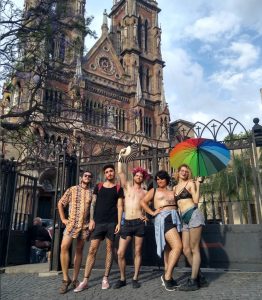
Pride and fight
This year’s march was the most summoning since its inception, 11 years ago. And it was lived as a great party, with the axis set to express ourselves freely in the streets and in the light of day, as we are. But it is very difficult to be happy in a context not only of lack of recognition of rights, but of systematic violence and harassment. Without going any further, the recent attack by Monsignor Aguer towards the identities, orientations and expressions of sexual diversity, which he describes as perverse, unnatural and impure, realizes how much we need to continue fighting.
Pride is not just glitter. It goes hand in hand with the courage of those who, through their own existence, resist and fight.
“In a world of worms, you have to have a lot of courage to be butterflies,” said Lohana Berkins.
… and it is that courage that was seen in this march.
Authors
Cecilia Bustos Moreschi, Mayca Balaguer y Mila Francovich
Contact
Cecilia Bustos Moreschi, cecilia.bustos.moreschi@fundeps.org

